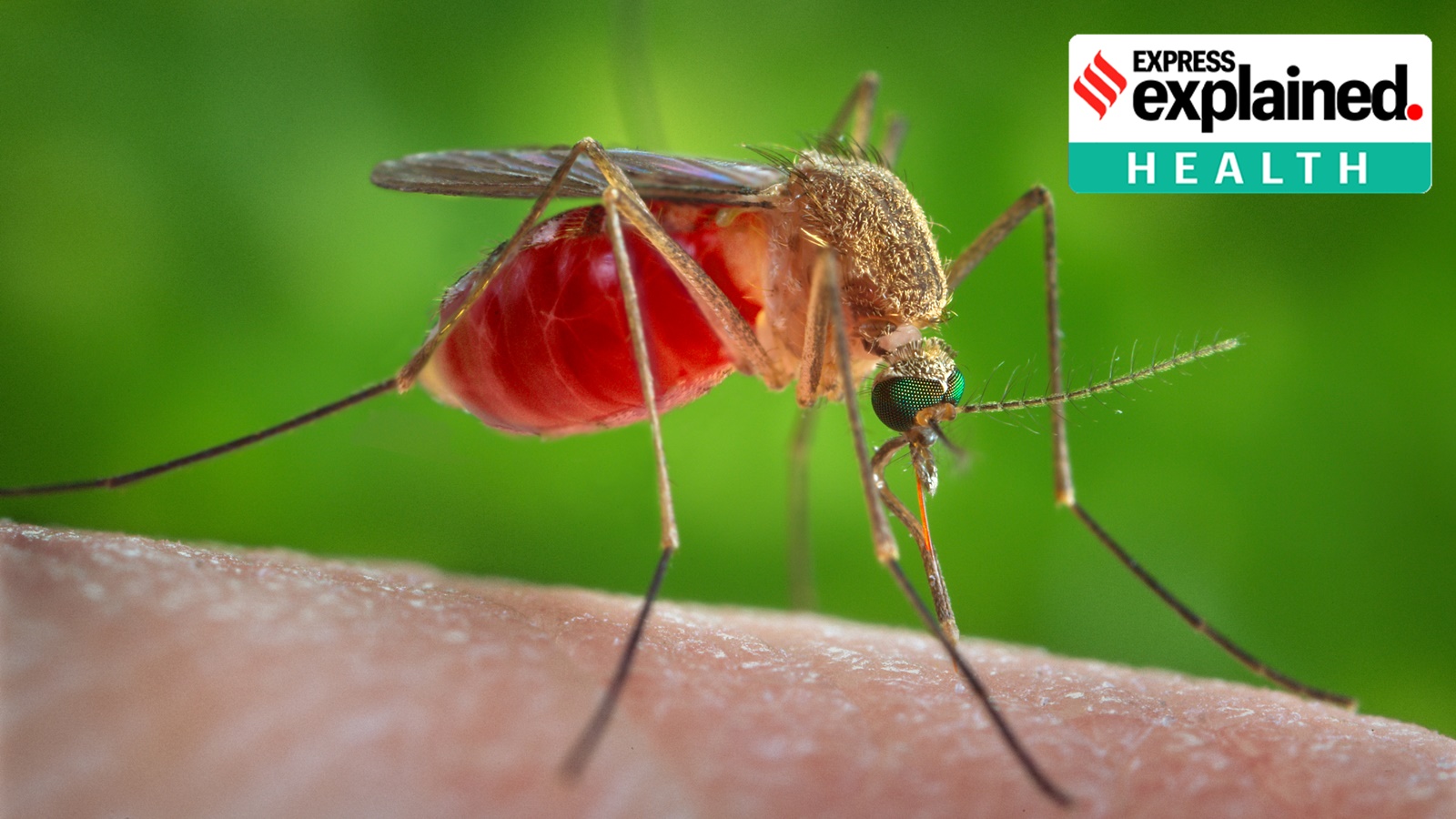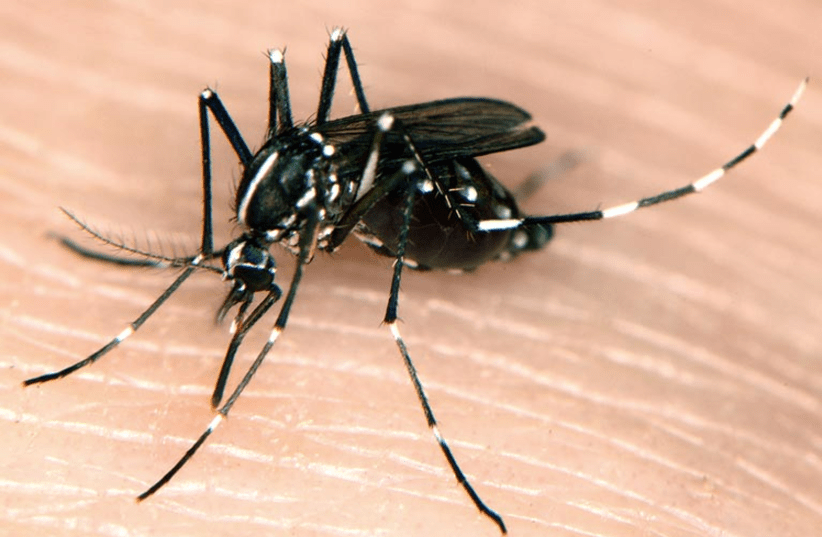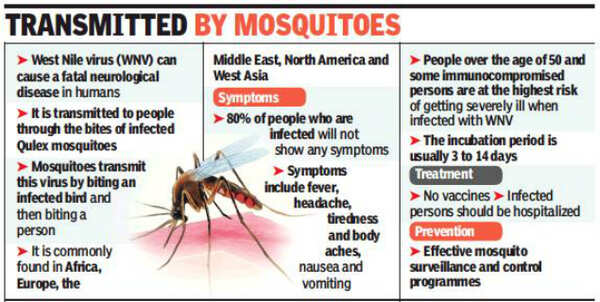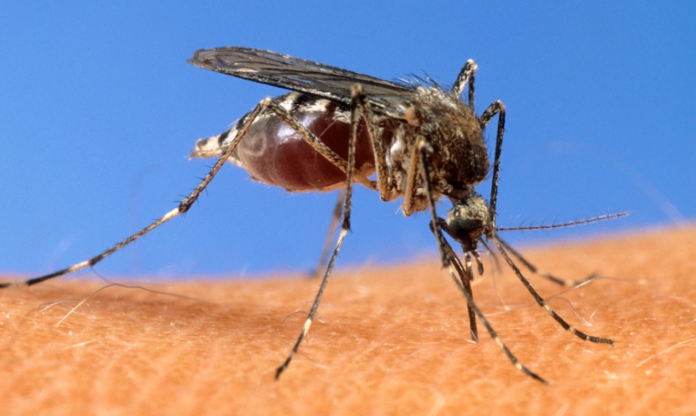According to medical specialists, the West Nile virus appears to be circulating more than typical for this time of summer, with nine cases confirmed so far this year.
As of June 25, at least seven states—Arizona, Arkansas, Kansas, Maryland, Michigan, Mississippi, and Tennessee—had confirmed human cases, according to the Centers for Disease Control and Prevention. This year, the virus has been found in humans, mosquitoes, birds, and other animals in at least 18 states.
Neuroinvasive instances accounted for five of the human cases; these individuals acquired serious conditions such inflammation of the brain or the membranes surrounding the brain and spinal cord. In rare instances, this may be lethal and result in confusion, vision loss, coma, or paralysis.
People who have a severe disease are usually given supportive care, such as fluids or pain medication, as there are no known vaccinations or therapies for West Nile.
Eight out of ten West Nile virus infections are asymptomatic. A lower percentage may experience a fever coupled with other symptoms such a rash, headache, body aches, joint discomfort, vomiting, or diarrhea. Most West Nile cases go undiagnosed because these symptoms are frequently mistaken for those of other viruses.
Every year, the United States reports range from several hundred to several thousand instances. August and September are when most cases are reported.
A spokesman for the CDC named Kate Fowlie stated in a statement, “We are seeing West Nile virus (WNV) activity a little earlier this year so it’s really important that everyone takes steps to protect themselves and their families from mosquito bites.” “We don’t exactly know how this year will compare to others because WNV is typically unpredictable and varies from year to year.”
READ MORE: A vegetarian diet: How to obtain optimal nutrition
Because mosquitoes may reproduce more quickly, bite more people, and survive for longer periods of time, rising global temperatures brought on by climate change have increased human exposure to the West Nile virus. Mosquito habitats have also grown due to climate change.
“There are pretty strong trends that the populations are growing earlier in the year for several species than they would have decades ago,” stated Scott Weaver, the director of the University of Texas Medical Branch’s Institute for Human Infections and Immunity.
More of them will survive the winter if it’s a warm one, he said. Furthermore, they will begin to multiply earlier in the year if the spring is warm.
Other mosquito-borne diseases like dengue fever have also increased in the United States as a result of these factors. Late this month, the CDC warned that the number of dengue fever infections in the nation was very high: As of Tuesday, the agency had roughly 2,400 instances on file, down from over 3,000 cases for the entire previous year.
According to Weaver, rural locations with a lot of agriculture and central states like Texas or Colorado are typically home to mosquitoes transmitting the West Nile virus. He also said that there is less West Nile activity in regions with lower temperatures, such as the Northwest.
“The virus is too slow to replicate in the mosquitoes and be transmitted efficiently if the temperature is not warm enough,” Weaver explained.
Since other states have just reported new human cases, the CDC’s total of West Nile infections this year is probably underestimated.
Since June 26, the Southern Nevada Health District has documented seven instances, five of which were made public on Wednesday. Neuroinvasive cases made up four of the total cases. As of June 27, over 8,000 mosquitoes in Southern Nevada tested positive for West Nile virus, according to the health district.
“We usually see West Nile-positive mosquitoes beginning of July, so we had our first positive mosquitoes in May, which is pretty early,” stated Vivek Raman, the environmental health supervisor for the Southern Nevada Health District.
When the monsoon season in the Las Vegas area begins, which is predicted to happen soon, Raman expressed concern that there will be more West Nile transmissions. Some mosquito species are more likely to flourish in regions with high rainfall, standing water from storm drains, or abandoned swimming pools.
In a news release, Douglas County, Nebraska, officials stated that their mosquito population appears to be higher than normal for this time of year. In late June, the county declared that a single individual, a blood donor, had tested positive for the West Nile virus.
The health director for the county, Dr. Lindsay Huse, stated, “This report is concerning in that it may indicate an early start to the West Nile season.”
One human case of West Nile virus in the Houston region has also been confirmed by the Texas Department of State Health Services. According to Weaver, there will be more cases in Houston this summer.
In Houston, he said, “a lot of virus is being discovered in mosquitoes very early on, so I think that’s a bad sign of things to come.”
A widow in Springtown, Texas, told NBC 5 Dallas-Fort Worth that her spouse passed away in late June from West Nile. Shortly before he passed away, the widow, Dranda Hopps, claimed that hospital personnel told her that her husband had tested positive for the virus.

The state health department has not yet formally notified the City of Springtown of a verified case, the city stated on Friday. According to the Texas Department of State Health Services, investigations may be conducted into further suspected cases.
According to Weaver, West Nile surveillance is typically restricted to large cities, making it challenging to determine the virus’s national distribution.
In order to concentrate more resources in the appropriate areas, he added, “it’s actually pretty frustrating that we haven’t made more progress being able to predict where we’re going to see epidemics of West Nile.”
Nonetheless, a few counties have used creative methods to identify populations of sick mosquitoes. Drones are used by Clark County, Nevada, to locate mosquito breeding grounds, and the Scott County Health Department in Illinois has requested that people report any dead bird sightings they come across. The virus naturally infects birds, and mosquitoes pick it up by feasting on infected birds. Illinois conducts West Nile bird testing to assist forecast when and where human health may be at danger.

Disease specialists recommend eliminating any stagnant water sources on your property, such as dirty flower pot saucers or swimming pools, to limit exposure. Another way to prevent insects from entering the house is to install screens on windows and doors.
Experts advise applying insect repellent and dressing in long sleeves and pants when you’re outside, especially during the hours of dawn and twilight when mosquitoes are most active.





